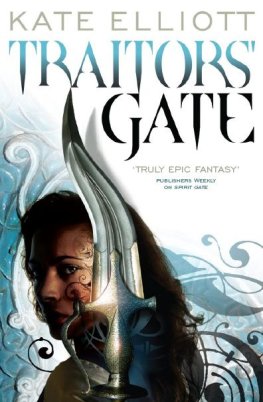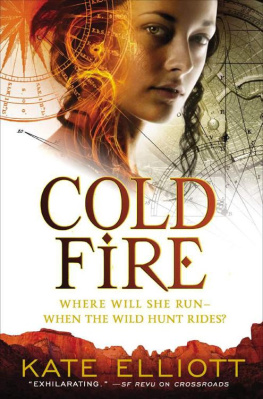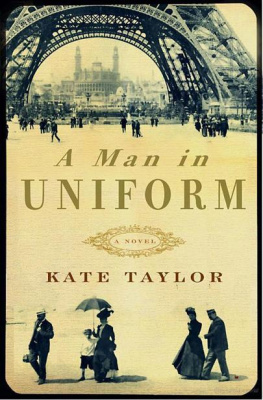Kate Elliott - An earthly crown
Here you can read online Kate Elliott - An earthly crown full text of the book (entire story) in english for free. Download pdf and epub, get meaning, cover and reviews about this ebook. genre: Science fiction. Description of the work, (preface) as well as reviews are available. Best literature library LitArk.com created for fans of good reading and offers a wide selection of genres:
Romance novel
Science fiction
Adventure
Detective
Science
History
Home and family
Prose
Art
Politics
Computer
Non-fiction
Religion
Business
Children
Humor
Choose a favorite category and find really read worthwhile books. Enjoy immersion in the world of imagination, feel the emotions of the characters or learn something new for yourself, make an fascinating discovery.

- Book:An earthly crown
- Author:
- Genre:
- Rating:3 / 5
- Favourites:Add to favourites
- Your mark:
- 60
- 1
- 2
- 3
- 4
- 5
An earthly crown: summary, description and annotation
We offer to read an annotation, description, summary or preface (depends on what the author of the book "An earthly crown" wrote himself). If you haven't found the necessary information about the book — write in the comments, we will try to find it.
An earthly crown — read online for free the complete book (whole text) full work
Below is the text of the book, divided by pages. System saving the place of the last page read, allows you to conveniently read the book "An earthly crown" online for free, without having to search again every time where you left off. Put a bookmark, and you can go to the page where you finished reading at any time.
Font size:
Interval:
Bookmark:
Kate Elliott
An earthly crown
"Barbaras hie ego sum, qui non intelligor illis."
OVID (Here I am a barbarian, because men understand me not.)"I can take any empty space and call it a bare stage. A man walks across this empty space whilst someone else is watching him, and this is all that is needed for an act of theatre to be engaged."
Peter Brook, The Empty Space Atheneum (New York, 1968)PROLOGUE
"Nature that framed us of four elements, Warring within our breasts for regiment, Doth teach us all to have aspiring minds: Our souls whose faculties can comprehend The wondrous architecture of the world: And measure every wandering planet's course, Still climbing after knowledge infinite, And always moving as the restless spheres, Wills us to wear ourselves and never rest, Until we reach the ripest fruit of all, That perfect bliss and sole felicity, The sweet fruition of an earthly crown."
MARLOWE Tamburlaine The GreatThe rider left the great sprawl of tents that marked the main camp of the nomad army just as the sun set. Dusk washed his scarlet shirt gray, and with only the gibbous moon to light him, he soon faded into the dark of night, the susurration of his horse's passage through the high grass marking his progress. Near midnight, he came to another, smaller camp, and here he changed horses and went on. By dawn, he was within sight of the low range of hills where lay the farthest outposts of the khaja, the settled people.
One hand's span after sunrise, he rode through a village. Fields spread out around the huts. Green shoots wet with dew sparkled in the soft light of morning. The khaja stopped in their tasks and stared at him, a lone jaran warrior armed with a saber and a lance, passing through their midst as if their presence was beneath his notice. None spoke, or moved against him.
A cluster of jaran tents stood in neat lines outside the leveled sod walls that had once protected the village. A single rider emerged from the encampment and rode out to meet him.
The traveler reined in his mount and waited, leaning forward over the horse's neck to whisper in its ear as it fretted at the tight rein. Then, sitting back, he lifted a hand. "Well met," he said as the young rider from the encampment pulled up beside him. "I am Aleksi Soerensen. I've come from the main camp, with a message for the Gathering of Elders. You're one of Grekov's riders, aren't you?"
"I'm Feodor Grekov. His sister's son. Soerensen?" Grekov hesitated, raising a hand to brush a lock of blond hair off of his forehead. He pronounced the name awkwardly.
"Yes," Aleksi agreed, politely but without a smile.
"You're the orphan that Bakhtiian's wife adopted," said Feodor. He examined Aleksi with what appeared to be common curiosity. ' 'It's said you have a fine hand for the saber."
Aleksi was disconcerted. He had not grown used to the respect, and the protection, his adopted sister's name granted him. "I had a fine teacher."
Feodor did not press the matter. "If you've come from the main camp, then your news must be important. I'll get you a new mount, and ride with you myself, if you need a guide."
' 'It's safe enough for the two of us from here on into the hills?"
"We have patrols running through all these hills. There are a few khaja bandits left, but nothing more. These khaja aren't real fighters. Soon they'll all be subject to us, as they should be." Feodor grinned. "And I'd like to go, anyway. It will be something to tell my children."
"Ah. You've a little one?"
Grekov flushed. "Not yet."
"But you've a woman in mind for a wife, I take it."
"I-" Feodor hesitated. "A man can't help looking," he said at last. Aleksi heard the bitterness in his voice clearly.
"I'd like to marry," Aleksi agreed, feeling suddenly and surprisingly sorry for Grekov, who ought to have had an easy life, being nephew of a tribal warleader and nephew to its headwoman. And since the unnamed young woman in question had no choice in marriage, Aleksi could only guess that the obstacles arose from Grekov's elders. "But I suppose I never will."
"Of course, as an orphan-but surely you've standing enough now, since Bakhtiian's wife has adopted you into her tent."
"Adopted me by her customs, not by ours. Or a bit by both, I suppose. Still, you may be right. I hope so."
"Gods," said Feodor, "there's enough trouble in the world without worrying about women." And that sealed their comradeship. Aleksi felt a bit overwhelmed by how easy it was, when you had a respectable name, a sister, a place in a tribe. "Come on," Feodor added, "we'll get you a new mount and something to eat, and then be on our way." He led Aleksi into camp and introduced him round as if he was just another young soldier like himself and the rest of the riders. A short time later, the two young men rode out in charity with each other.
By midday they reached the butte known to the jaran as khayan-sarmiia, Her Crown Fallen from Heaven to Earth. Once, the stories said, this range of hills was known only to the jaran tribes, but in recent generations a few khaja settlements had crept out across the plains from settled lands in the south and west to pollute the holy ground where the Sun's Crown had come to rest on the earth.
At the base of the hill, an army waited. Countless soldiers, in their tens and hundreds and thousands, gathered to acclaim the man who would lead them against their ancient enemies. Aleksi and Feodor left their horses with the army and hiked up the trail that ascended the steep hillside. The wind began to buffet them. Soon both were breathing hard, despite their youth, because they were not used to so much hard walking.
At last, the path leveled and gave out onto a plateau from whose height they could see the shifting mass of the army below, the rolling spread of hills, and a few distant wisps of smoke that marked khaja villages. Far to the south, past the flat haze of plain, a suggestion of bluer haze marked the southern mountains. To the north and east lay only the vast golden plains that blended at the horizon into the equally monotonous blue of the sky. West, though they could not see it from here, lay the sea.
They admired the view for as long as it took to get their breath back. But of far greater interest was the gathering now taking place on the plateau itself.
A single tent had been set up at the southern end of the plateau, a great tent whose sides shook in the wind that scoured the summit. Between the northern end, where the two young men stood on an escarpment of rock, and the tent lay a broad stretch of ground smoothed by generations of wind and storm. On this ground, on the earth itself, some on blankets, some on pillows, sat the assembled commanders and elders of the thousand tribes of the jaran.
At the very back sat the younger men, commanders of a hundred riders each; many now wore the scarlet shirts, brilliant with embroidery on the sleeves and collar, that had come to be the symbol of the jaran army, though a few still wore the colors of their own tribe. In front of them sat a sea of elders, some ancient and frail, some elderly but robust, female and male both.
At the very front sat the etsanas of the thousand tribes, each headwoman flanked by the dyan, the warleader, of her tribe. Most of the women were elderly, though a few were young. They wore their finest clothing, bright silk blouses beaded with gold and silver under calf-length tunics. Striped, belled trousers swelled out underneath. Jeweled headdresses and necklaces and torques and bracelets adorned them, and their hand mirrors hung free of their cases, face out in the glare so that they reflected the light of the sun. So many wore tiny bells that a faint tinkling chime could be heard, underscoring the rush of wind and the solemn proceedings.
Font size:
Interval:
Bookmark:
Similar books «An earthly crown»
Look at similar books to An earthly crown. We have selected literature similar in name and meaning in the hope of providing readers with more options to find new, interesting, not yet read works.
Discussion, reviews of the book An earthly crown and just readers' own opinions. Leave your comments, write what you think about the work, its meaning or the main characters. Specify what exactly you liked and what you didn't like, and why you think so.





